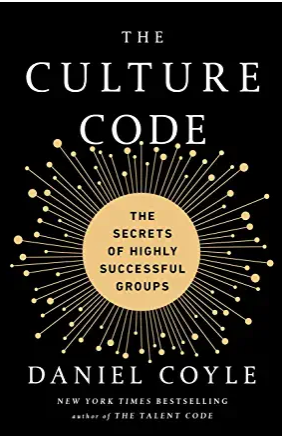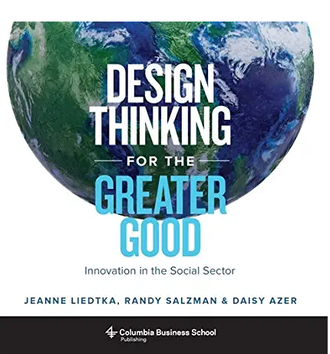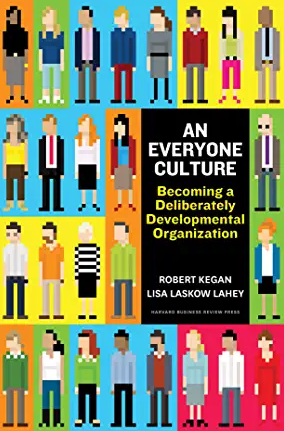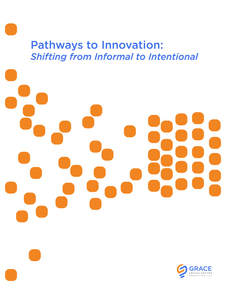Mission: Impact podcast & blog
Build a better world without becoming a martyr to your nonprofit cause
Listen on:
 The Culture Code: The Secrets of Highly Successful Groups By Daniel Coyle What creates successful group and organizational cultures? That is the question that Daniel Coyle pursues in his book. “Culture is a set of living relationships working toward a shared goal. It’s not something you are. It’s something you do.” US culture tends to focus on the charismatic, visionary leader yet Coyle’s research finds that successful groups tend to do lots of small things towards success rather than large dramatic things. Three key skills emerge – build safety, share vulnerability and establish purpose. Like Jim Collin’s Good to Great, Coyle finds a lot of quiet, observational leaders who cultivate a healthy ecosystem and group around them through lots of questions at key points to help team members learn to think on their own. There are lots of useful and actionable points in the book. I wish for a future when business books highlight as many women as men in their examples without having women in the title!  Design Thinking for the Greater Good: Innovation in the Social Sector By Jeanne Liedtka, Randy Salzman & Daisy Azer Design thinking is a problem solving approach that is human centered. It prioritizes really getting to know the people involved in your challenge and looking at the world from their perspective. It focuses on multiple options, experimentation and iteration. This method has served to democratize design and Jeanne Liedtke’s model makes it particularly accessible (What is? What if? What wows? And What works?). While the process originated in Silicon Valley, Liedtke and her team profile how design thinking has been used in the social sector. They include case studies from government, national, state and local nonprofit organizations – from the US and internationally. Each instance showcases the real experience – from the excitement at the start of the project to the dead-ends and false starts to results that in many instances could not have been envisioned from the outset. Using design thinking, the professionals highlighted get to see their organization from the perspective of whom they serve. With this, they are able to identify the ways in which the system is not made for the client. Then they are able to imagine how they might make things better. This is all in the service of having clients have a better and more humane experience while getting the help the organization is designed to deliver. If you have just heard about design thinking and have wondered how it might apply in your situation, this book is a great place to start.  An Everyone Culture: Becoming a Deliberately Developmental Organization By Robert Kegan and Lisa Laskow Lahey “In most organizations, everyone is doing a second job no one is paying them for…Most people are spending time and energy covering up their weaknesses, managing other people’s impressions of them, showing themselves to their best advantage, playing politics, hiding their inadequacies, hiding their uncertainties, hiding their limitations. Hiding.” (pg1, An Everyone Culture) What if this were not necessary? An Everyone Culture describes a few unicorn organizations that have truly put people at the center of their purpose. Developing and investing in people. Not as an afterthought or bonus for just for a few people – for everyone. Where the culture revolves around helping everyone recognize, acknowledge and learn from their mistakes, build on their strengths and stretch and grow. Lots of organizations give lip service to the idea that people are their most important asset. Yet they rarely act as if that were really true. Each of the three organizations the authors describe as deliberately developmental organizations (DDO) do this through a multitude of practices that center transparency, regular feedback across all levels, team building and professional development – at the individual, team and organizational level. While the authors went into their research assuming that being a DDO would contribute to the business success of these organizations, they concluded by the end that in fact being a DDO is the cause of the business’ success. Much has been written about how emotional intelligence and people skills will be the key differentiators as work continues to morph and shift. Learn from these leaders what that might look like.  Most associations rely on informal processes for moving innovation forward within their organizations finds a new study, Pathways to Innovation: Shifting from Informal to Intentional. The majority of new ideas and initiatives come from staff with the CEO and senior leadership leading most efforts. Many of these ideas are adapted from other organizations. We are innovativeIt was surprising that most of the association executives who were interviewed described their association as innovative. This runs counter to the prevalent narrative that associations struggle with innovation and change, Yet few organizations are taking a member-centric approach to creating new programs and services that meet their members’ unmet needs. Additional FindingsInformal market research processes
The majority of associations interviewed also rely on informal market research processes. As other studies have found, they have few formal mechanisms for regular review of their portfolio of offerings and find it challenging to sun set programs and initiatives. Three primary foci of innovation projects Current innovation projects of the associations interviewed clustered in three primary areas: upgrading internal technology systems, building online learning programs and shifting to shorter, more targeted events. Download the full report, Pathways to Innovation: Shifting from Informal to Intentional. |
Categories
All
Archives
July 2024

Grace Social Sector Consulting, LLC, owns the copyright in and to all content in and transcripts of the Mission: Impact podcast, as well as the Mission: Impact blog with all rights reserved, including right of publicity.
|
Telephone301-857-9335
|
info[at]gracesocialsector.com
|
Grace Social Sector Consulting, LLC, owns the copyright in and to all content in, including transcripts and audio of the Mission: Impact podcast and all content on this website, with all rights reserved, including right of publicity.
|